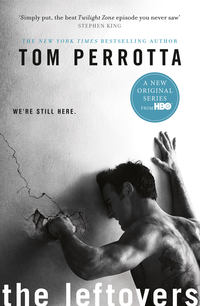
Полная версия
The Wishbones
Grateful for the diversion, he poured himself a stiff vodka tonic. Given that he and Mr. Müller usually made it a point to steer clear of each other, he was somewhat alarmed by the formality of the situation. A roster of unpleasant questions unfurled itself in his mind. What kind of life could he offer Julie? What was the state of his finances? Could he foresee a day when he might be able to afford a house or children? Dave knew all the questions; they were the same ones he'd posed to himself when he'd needed to talk himself out of marriage in the past. Nonetheless, it was galling to have to justify his life to Mr. Müller. He dropped a chunk of lime into his drink and vowed not to apologize for the choices he'd made.
For some reason, the couch was the only piece of furniture in the rec room, so he had no alternative but to sit down a cushion's distance away from Mr. Müller, who was examining Dave's ratty jeans and dirty Converse All Stars with an expression of careful indifference. Dave wished that Julie had warned him that her family was dressing up; he might've at least shaved and given a little more thought to his wardrobe.
“Cheers,” he said, raising his glass in a halfhearted toast.
Mr. Müller returned the gesture without enthusiasm, then pointedly cleared his throat. “I think we need to talk.”
“Okay.”
Mr. Müller swirled the scotch around in his glass. He looked vaguely pained, as though he were trying hard to remember a name. “You've been hanging around Julie for a long time,” he observed, “but I don't feel like I know you. I haven't gotten a handle on … How should I say this? Your angle on the world.”
“Obtuse,” Dave replied, his nerves getting the worst of him.
Mr. Müller cupped one hand around his ear like Ronald Reagan. “Excuse me?”
“Obtuse,” Dave repeated, enunciating more clearly. “I was trying to make a joke. It's a kind of angle. More than ninety degrees?” He tried to illustrate the concept with his hands, but ran into some unexpected difficulty.
“I see,” Mr. Müller replied, attempting to look amused. “Obtuse, acute.”
“Right,” said Dave.
“Geometry,” Mr. Müller said approvingly, as though the subtleties of Dave's remark had finally fallen into place.
“Exactly.”
Mr. Muller polished off his drink and set the glass down on the coffee table with a decisive smack.
“Do you like to fish?”
“Excuse me?” said Dave.
Mr. Müller reformulated the question.
“Fishing,” he said. “Do you like it?”
“Not really. I went a couple of times as a kid, but then I got the hook caught on my eyelid one time, and I pretty much lost interest after that.”
“That'll do it,” Mr. Müller agreed.
“What about you?” Dave ventured after a moment or two of silence. “Do you?”
Mr. Müller gave the matter some thought. For his age, he was a good-looking man, tall and lean, with a boyish shock of gray hair falling over his forehead. He looked senatorial, Dave thought, although his brief entry into the political arena had been a disaster. After losing three close races for a seat on the Darwin school board, he'd bowed to the wishes of the Republican Party and made way for another candidate.
“Never did much for me,” he admitted. “It's bad enough watching them die, but then you have to clean them. Grabbing a handful of slimy guts just isn't my idea of R & R.” He retrieved his glass from the table. “Mind if I have another?”
“Be my guest,” Dave told him.
Mr. Müller got up and poured himself a generous drink. Julie sometimes wondered out loud if her father had a drinking problem, if that was why his career had stalled and he'd ended up as a low-level manager at Prudential instead of the bigwig executive he seemed cut out to be.
“Why did you want to know?” Dave asked.
Mr. Müller eased himself back into his seat. He tasted a mouthful of the scotch as though it were a fine wine. “Know what?”
“Why did you ask me if I liked to fish?”
“Just curious. I was wondering what you do for fun. If you have any hobbies and so forth.”
Dave shook his head. “Just the music, but that goes way beyond a hobby. It's the only thing I really care about.”
“Julie tells me you're in a wedding band.”
“The Wishbones. I've been playing with them for two years.”
“Good money in that?”
Here it comes, Dave thought.
“Not bad, actually. About fifty bucks an hour when you break it down.”
“Must be interesting,” Mr. Müller observed, “going to all those weddings.”
Dave nodded. “You learn a lot about people.”
“I bet.” Mr. Müller shoved one hand into his pants pocket and jingled some change. “What about DJs? Give you much competition?”
“Not really. There's no real substitute for live music.”
Mr. Müller gazed contemplatively at his beverage. “A kid I work with is a DJ. He calls himself Rockin’ Randy or some such.”
Before Dave could reply, Julie opened the door and poked her head into the room.
“Dinner,” she told them.
Mr. Müller jumped up from the couch like he'd heard a gunshot.
“Chowtime,” he said, looking deeply relieved.
Later, after her parents had gone to bed, Dave and Julie went down to the rec room to watch TV. Dave channel-surfed for a while, stopping to watch an Amy Grant video on VH1. He'd never told anyone, but he thought Amy Grant was the sexiest woman alive. The fact that she was born-again just made fantasizing about her that much more exciting.
Julie snuggled up next to him like they were back in high school. “Well,” she said, “that wasn't so bad, was it?”
Amy Grant was dancing against a chaste white background, wearing a succession of cute hats, looking like she was having the time of her life. That was the secret of her appeal, Dave realized. She just seemed so ecstatically happy to be herself, beautiful and dancing on VH1.
“Was it?” Julie asked again.
“The food was great. You outdid yourself.”
“My parents were good, too, don't you think?”
“They were fine.”
In fact, the evening had been fairly painless, much easier than Dave had expected. Mr. and Mrs. Müller were surprisingly civil with each other, and Julie hadn't snapped at them once. No one made even a veiled reference to the sex incident. Julie slid her index finger between two buttons of Dave's shirt.
“It's amazing how excited they were when I told them. How did your parents take it?”
It had always interested Dave how some artists were able to make videos that captured their sensibility, while others couldn't even come close. As a general rule, the cooler you were, the less likely you were to succeed on video. You couldn't really imagine Chrissie Hynde or Natalie Merchant dancing around in twelve different hats.
“Dave.” Julie snatched the remote from his hand, erasing Amy from the screen. “I asked you a question.”
“Sorry. I got a little distracted.”
“What's wrong? You act like something's bothering you.”
He swallowed hard. It was now or never.
“There is,” he confessed.
She moved away from him, sitting up straight and watching him with an alertness that was fierce, almost animal.
“What?”
“I feel awful about this.”
“Go on,” she said. There was the faintest quiver in her voice.
All at once, he knew he couldn't do it. He'd never be able to. They'd live together for fifty years and be buried side by side before he'd be able to explain that it was all just an accident.
“Go on,” she repeated.
“It's the ring,” he said. “I can't afford to buy you a good one.”
The tension drained visibly from her face; she slumped back against the couch and shook her head.
“I don't care about the ring,” she told him.
“I do. You deserve a nice one.”
“I really don't care, Dave.”
“Well, I do.”
She terminated the discussion by reaching behind his head, pulling his face against hers, and kissing him in a way that normally would have made him forget everything else.
“Julie,” he said, when she finally came up for air, “I was wondering about something.”
“Hmm?”
“Do you have any photo albums I could look at?”
“Now?” she asked, kissing him again.
“Yeah,” he said. “If it's not too much trouble.”
“Right now?” she asked, tracing the grooves of his ear with her tongue.
“Uh-huh,” he murmured. “As long as it's not a problem.”
“This very minute?” she asked, sucking on his earlobe while tugging with gentle efficiency on his belt.
“Whenever,” he told her.
YOU'VE GOT A FRIEND
On the way to Phil Hart's wake, Dave told Buzzy about his engagement.
“That's great,” Buzzy said. He was wearing a black pinstripe suit with a black shirt and a skinny white leather tie, an outfit that made Dave vaguely embarrassed on his behalf. “I'm really happy for you.”
“You mean that?”
“Why wouldn't I?”
“I don't know. I'm not sure it's such a great idea myself.”
“Why?” Buzzy turned to Dave with an expression of dawning comprehension. “Her old man answer the door with a shotgun?”
“Nothing like that.”
A couple of seconds went by. “So how'd it happen? You get down on your knees and all that crap?”
“I don't know.”
“You were there,” Buzzy reminded him. He looked at Dave more closely. “You were there, right?”
“I was,” Dave admitted. “I just didn't mean to do it.”
“Ah,” said Buzzy.
Dave's chest felt constricted, as though he were wrapped from armpit to navel in Ace bandages.
“I'm up the fucking creek,” he said. “She's already reserved the church.”
Buzzy laughed. “Tell her you have a gig that day.” When Dave didn't respond, he rolled his window down and spit a wad of gum into the street. “It was easier for me. Jo Ann was pregnant with Zeke. That kind of made the decision for me.”
Of all the Wishbones, Buzzy had come closest to the big time. In the mid-eighties he'd been part of Flesh Wound, a locally popular speed metal band that had been on the verge of signing with one of the major labels when the guy they were negotiating with got fired and the deal collapsed. Flesh Wound's lead singer and lead guitarist split off to form LasseratoR, which had since become a fixture on the local club circuit, but Buzzy had retired from serious rock ‘n roll in favor of marriage and family.
“Jesus,” said Dave. “Look at this.”
Warneck's Funeral Home looked like the scene of a good party. Cars lined both sides of the street in front of the imposing Victorian mansion; well-dressed people stood in clusters on the porch and lawn, taking advantage of the balmy evening.
Dave parked on a nearby side street. He and Buzzy walked in silence down a sidewalk sprinkled with a confetti of white blossoms already going brown along the edges. There was a greenish fragrance in the air, a soft springtime smell that made him nostalgic for high school, the feeling of endless possibility that stretched out in front of you every time you left your house on a night like this.
“Are you glad you did it?” he asked.
“What? Get married?”
“Yeah.”
“I'm forty-one,” Buzzy replied, after a brief hesitation. “I got a house, a wife and kids, and a job that doesn't make me want to buy a gun and go wreak havoc at the mall. I get to play music on the weekends and drink a couple of beers every once in a while. Things could be worse, Daverino. They could be a helluva lot worse.”
“I hear you,” said Dave.
A couple of teenage girls nearly bumped into them as they rounded the corner to Warneck's. The girls were nothing special, a pair of giggly fifteen-year-olds in baggy jeans and tight cropped shirts that exposed their navels, but Dave and Buzzy parted like the Red Sea to let them pass, then turned to watch them continue down the street, the air still vibrating from the mysterious power of their bodies.
“Damn,” said Dave.
“Sweet Jesus,” said Buzzy.
Just then, for no reason at all, the girls turned in unison and waved. They exploded into a fresh round of giggles when Dave and Buzzy waved back. Buzzy tugged on the sleeve of Dave's sport coat.
“Come on, let's go talk to them.”
“Okay,” said Dave.
Despite their agreement, both men remained motionless as the girls receded into the distance, finally disappearing around a corner. Without further discussion, Dave and Buzzy turned and walked the rest of the way to the funeral home.

Stan knew he was going to be late for the fucking wake, but there was nothing he could do about it. He had to give Susie her goddam birthday present. That was the important thing. If Artie didn't like it, Artie could take his shiny saxophone and ram it up his managerial ass.
He uncapped the bottle of Jack Daniels between his legs and took a long pull, keeping his eyes trained all the while on the door of the handsome white clapboard house with the wraparound porch that doubled as the law offices of Joel Silverblatt, attorney-at-law.
“I'm Joel Shysterblatt,” Stan mumbled, “and if you suffer from hemorrhoids or tooth decay related to an automobile accident, I've got important information that you need to know.”
When she first started working for the guy, Susie had loved it when he did his Joel Shysterblatt imitation.
“That's him,” she'd say, covering her mouth to hold in the laughter. “That's Joel to a T.”
Then, all of the sudden, she didn't find it so funny anymore.
“Joel's a sweet guy,” she'd tell him. “He's not like you think.”
“Come on,” Stan would say. “The guy's a shyster. He gets rich off other people's misery.”
“You know what?” she'd tell him. “You don't know the first thing about the contingency fee system. It works to protect the little guy.”
“The guy's a shyster, Susie.”
“And stop using that word. It's anti-Semitic.”
She was probably already fucking Shysterblatt by the time she started talking like that, but Stan was living in a dreamworld. Susie was his wife. They'd been happily married (at least in Stan's opinion) for eighteen months. It never occurred to him that she might be even the least bit attracted to her boss until he came home from a wedding one Saturday night and found an envelope on the kitchen table with his name on it.
He lifted Susie's unwrapped gift off the passenger seat and studied it in the failing light. It was a framed enlargement of a picture taken on their honeymoon in Cancun. Stan couldn't remember who'd taken the picture, but he knew it couldn't have been him or Susie, since both of them were in it.
The subject is Susie, standing on the beach in a pink bikini, squeezing water out of her hair with both hands. She's smiling, and her evenly tanned skin glistens with tiny droplets of water. Behind her, the ocean glows a rich shade of turquoise. At the left edge of the image, a man's arm reaches into the frame, offering the woman a towel. The arm belongs to Stan.
He thought the picture captured something important about their relationship, something she needed to think about. If it hadn't been for the restraining order, he would've just walked into the office and laid it on her desk.
“Happy Birthday,” he would've said. Nothing else. And then he would've walked out.
He still couldn't believe she'd slapped him with that court order. He hadn't been violent with her except that one time, and even then, he'd only put her in the headlock to try to get her to listen. At the hearing, she'd accused him of stalking her and making death threats. On Joel's advice she'd taped his phone calls and kept a log of the time he spent spying on her from his car. Stan was surprised to learn that he'd called her on fourteen separate occasions on Valentine's Day, each time saying the exact same thing before hanging up: “Till death do us part, Susie. Till death do us part.” (He'd been drinking that day, and could only remember calling her five, maybe six times at the most.)
Stan explained that he'd only been reminding her of her wedding vows, but the judge—probably an old law school chum of Shysterblatt's—had ruled in Susie's favor. So now Stan wasn't allowed within a hundred feet of the woman he'd married and still loved with all his heart. That was the fucking legal system for you.
At five after seven, Joel Silverblatt emerged from his office and walked across the street. He tapped on the driver's-side window of Stan's LeBaron. Stan rolled it down.
“Go home,” Silverblatt told him. “We just called the police.”
“The police can't do anything. I'm more than a hundred feet away.”
“You're drunk. You're sitting in your car with a bottle of whiskey. You want to lose your license on top of everything else?”
“Everything else?” Stan repeated incredulously. “You mean like my wife?”
The evening was breezy; Silverblatt reached up with both hands to protect his hairdo from the elements. He was a rubber-faced guy with a fleshy nose and dark circles under his eyes from trying to keep up with a woman half his age.
“Go home, Stan. Go anywhere. Don't you have someplace else to be?”
Stan thought of the wake. He thought of Artie, and of the cops on their way. He thought of Susie in Mexico, ocean water streaming from her hair. Suddenly he felt tired, too tired for any more trouble.
“I'll go,” he said. “On one condition.”
“What's that?”
Stan poked the picture into Silverblatt's tummy. “Give her this. It's her birthday present.”
With obvious reluctance, Silverblatt accepted the photograph. Stan started his car.
“It's our honeymoon,” he explained. “That's me holding the towel.”

“I'm sick of this bullshit.” Artie pushed up the sleeve of his double-breasted Armani-style suit to consult his nearly authentic Rolex. He held up his thumb and forefinger, spaced about an inch apart. “Stan's about this fucking close to being an ex-fucking Wishbone.”
“Come on,” said Dave. “It's a wake. What's the difference if he's here or not?”
“What's the difference?” Artie asked. “I'll tell you what's the difference. A band's only as strong as its weakest member. If one guy is a fuck-up, the whole group's in trouble.”
“Did you see Sid and Nancy?” Ian cut in. He was dressed like a professor on TV, tweed jacket over a black turtleneck. The jacket even had patches on the elbows. “It's just like what you're talking about.”
“Didn't see it,” said Artie.
“I did,” said Dave.
“Sid and Nancy?” Buzzy seemed distressed. “The one about the waitress?”
“Waitress?” Ian went cross-eyed and stuck out his tongue. “What planet are you from?”
“Sid Vicious,” Dave explained. “The guy in the Sex Pistols.”
“Good flick?” asked Buzzy.
“Excellent,” said Ian. “You should rent it sometime.”
“I liked The Doors,” Buzzy told him. “You were right about that one.”
“Oliver Stone.” Ian nodded as though the director were a friend of his.
“You liked that?” Artie said. “How could you like that crap?”
“I liked the scene in the elevator,” Buzzy said, grinning at the memory. “The one where he gets the blow job.”
“The guy was a poet,” said Ian. “An honest-to-God fucking poet.”
“Big deal.” Artie shook his head in disgust. “He writes a few good songs, shows the world his dick, gets fat as a pig, and drinks himself to death. That's the whole movie.”
“He was trying to make a point,” Ian countered.
“Oh yeah?” said Artie. “What point is that?”
Ian thought it over for a few seconds, then shrugged.
“Beats me,” he said. “I still think it was a pretty cool movie.”
Nobody said anything for a while. Artie checked his watch again and muttered something about Stan being a total fucking zero. Ian knelt down and rubbed a spot of dirt off his cowboy boot. Dave watched a teenage boy help a frail old woman up the steps of the funeral home and wondered why a grown man would make himself miserable over something as simple as marrying the woman he loved. Buzzy slapped himself in the forehead.
“Frankie and Johnny.” he said, his face lighting up with relief. “That's the movie I was thinking of.”
Phil Hart was laid out in the clothes he'd died in, the satin-lapeled, powder blue uniform of the Heartstring Orchestra. On a nearby table, surrounded by elaborate bouquets and floral wreaths, a boom box played a tape of Phil singing “Summer Wind,” accompanied by a piano.
Dave had never been to a wake with music before, and he thought it made a real difference. Instead of the grim focus on the casket he'd encountered in the past, there was a relaxed, almost cheerful atmosphere in the viewing room. People were mingling; a low hum of conversation filled the void between the living and the dead. If you closed your eyes, you might have thought you'd wandered into a cocktail party by mistake.
The Wishbones joined the line of people waiting to file past the coffin and offer their condolences to Phil's family, who were gathered along the opposite wall in a wedding-style receiving line. Dave was surprised to see the surviving members of the Heartstring Orchestra, also in uniform, standing shoulder to shoulder with Phil's wife and grown children, as though all of them—not just Joey Franco, but Walter and Mel as well—were blood relatives of the dead man, instead of guys he'd played in a band with.
“Candy Man” followed “Summer Wind.” Dave thought it was a peculiar song to be playing at someone's wake—he remembered hearing somewhere that it was actually about a drug dealer— but it seemed to have some sort of special meaning for the people in the receiving line. As soon as it began, the attention in the room shifted to Phil's widow, a tiny, white-haired woman with delicate features and a dazed expression on her face. She dabbed at her eyes with a pale green Kleenex, then whispered something to the overweight man standing next to her. The man, who must have been her son, smiled like he was going to cry and said something in response that sent a ripple of amusement down the line. Ian poked Dave in the ribs.
“Daryl Dragon,” he said.
“What?”
“Daryl Dragon.” Ian looked smug. “I'll be amazed if you get this one.”
Dave was in no mood for trivia, but he didn't want to hurt Ian's feelings. He pretended to think about Daryl Dragon while watching the activity on the other side of the room. Phil's widow began to sob quietly, as did Mel, the sax player in the Heartstring Orchestra. He buried his face in his hands while Joey Franco patted him awkwardly on the arm. Walter, the piano player, reached into his inside coat pocket with one trembling hand and pulled out a crumpled handkerchief. An obscure synapse fired in Dave's brain; two lost faces spiraled up at him from the dark swamp of oblivion.
“The Captain,” he said.
Ian's mouth dropped open. Despite his best efforts, Dave felt a smile spreading across his face. Mel blew his nose into Walter's handkerchief; the sound of it was audible across the room.
“Daryl Dragon was the Captain in the Captain and Tennille.”
“Son of a bitch.” Ian ran his fingers through his hair in a way that expressed his total amazement. “They should put you on Jeopardy.”
The first thing Dave noticed when he stepped up to the coffin was the microphone someone had tucked between Phil's crossed hands and white shirt, as though he'd been booked for a couple of gigs in heaven and wanted to arrive prepared. The unexpected sight of it—black, sleek, technological—made him wonder if, centuries from now, long after Phil himself had returned to dust, archaeologists from another civilization might dig up his grave and discover a pair of artificial hips and a microphone.






